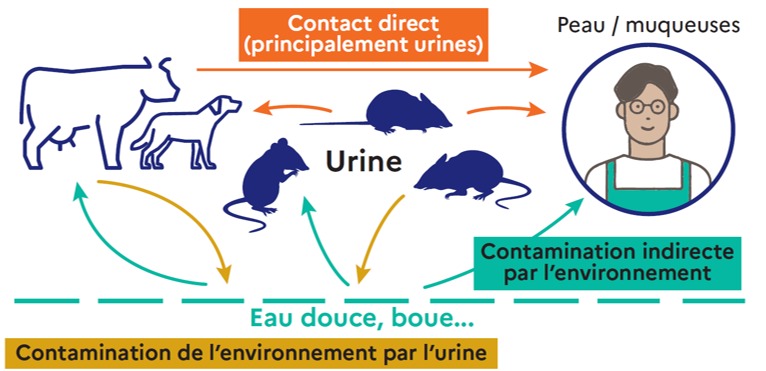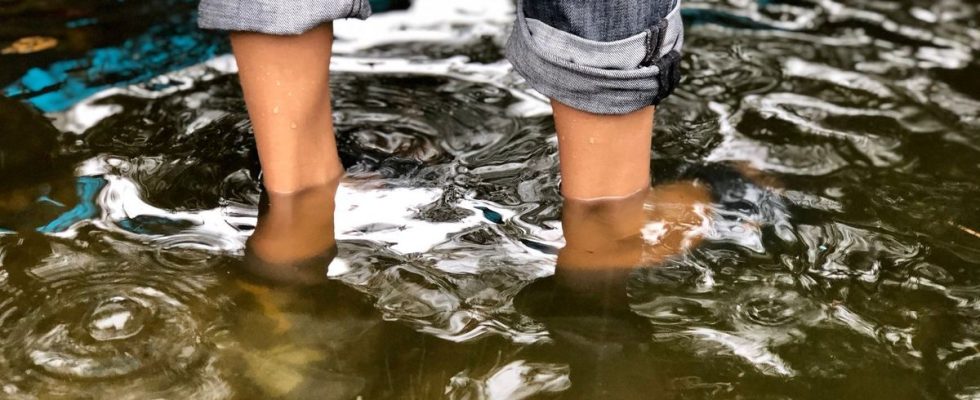Published on
Updated
Reading 3 min.
Heavy rains promote soil leaching and contamination by the bacteria responsible for leptospirosis, a disease that can be fatal. To prevent contamination, health authorities are issuing several recommendations.
After the passage of Cyclone Belal on Reunion Island, health authorities are asking the population to take precautions to avoid leptospirosis. This disease can be fatal without appropriate treatment.
🚨 Pay attention to #leptospirosis and especially after the passage of the cyclone #Belal !
⚠ This disease can be serious and lead to hospitalization or even death. It is transmitted by contaminated urine from infected animals, notably rats🐀
In 2023, 171 cases of leptospirosis… pic.twitter.com/8V0em0fr5Y— ARS La Réunion (@ARS_LaReunion) January 22, 2024
Leptospirosis: a disease can be fatal
The bacteria that causes leptospirosis develops particularly during the rainy season and even more so after a cyclone. Contamination occurs by contact with a soiled humid environment (mud, puddles, etc.) or directly with the contaminated urine of infected animals, notably rats, but also certain carnivores, certain livestock (cattle, goats, sheep, horses, pigs) and pets (dogs).
Bacteria are easily resistant to the external environment (fresh water, muddy soils) and survive for several weeks in fresh water, soil or a humid environment. In humans, direct contamination (animal contact) is uncommon compared to indirect contamination (contact with soil or contaminated water, sludge, puddles, stagnant water at the edge of ravines) via cuts or wounds (even small ones) or through the mucous membranes (eye, mouth, nose).
After a few days of incubation (4 to 19 days on average), leptospirosis manifests itself with symptoms that can be easily confused with other infections such as dengue fever, Covid-19, etc.:
- High fever with sudden onset (often > 39°C),
- Muscle, joint, abdominal pain,
- Nausea, vomiting,
- Severe headaches.
Be careful, the disease can worsen 4 to 5 days after the first signs and spread to the liver, kidneys, lungs, meninges, and can be fatal. In the most serious cases, acute renal failure may occur, accompanied by neurological damage (convulsions, coma) and more or less significant pulmonary or digestive hemorrhages. More rarely, ocular complications (uveitis, keratitis) may appear in the long term. The majority of infected people do not suffer any after-effects.
Administered early, antibiotic therapy reduces the risk of complications and alleviates symptoms. Severe forms require hospitalization.

Certain activities are risky
Activities of cleaning yards and gardens without sufficient protection (boots, gloves, etc.) or swimming in fresh water after heavy rain are therefore particularly at risk. Particular vigilance is therefore recommended after the passage of a cyclone.
Agricultural workers (farmers, breeders) are also particularly exposed due to their professional activity.
In this context, the ARS La Réunion and Santé Publique France recommend using gloves or boots in the event of activities in a humid environment (puddles, stagnant water, rivers, etc.), but also to protect and disinfect their wounds, not to walk barefoot (or in unsuitable shoes) in stagnant or muddy water or to fight against rats. It is also recommended “to postpone leisure activities in fresh water in the event of cloudy water”.
Rat control and vaccination of pets are also means of protection.
Heavy rain could promote contamination
The rainy season is the period most at risk because it presents temperature and rainfall conditions favorable to the survival in the environment of the bacteria responsible for this disease. Episodes of heavy rain promote soil leaching and environmental contamination and are therefore particularly risky periods.
During 2023, 171 reports of leptospirosis were declared to the ARS of Réunion, more than 70% of which occurred between January and June 2023.
60,000 deaths per year
In France, the leptospirosis has no longer been required to be declared since 1986, but remains under surveillance. There is a vaccine against the type of bacteria most frequently involved for professionals (sewer workers, veterinarians).
Worldwide, leptospirosis causes more than a million cases per year, including 60,000 deaths.
